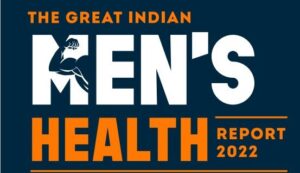Men’s Health Report published by Pristyn Care on the occasion of International Men’s Health Week shows Indian men’s behaviour towards healthcare is changing. Pristyn Care’s health report aims to provide a comprehensive view of men’s health and insights on elective surgery-related trends in the country.


Men’s Health report highlights:
1. 76% of men going for Gynecomastia (male breast reduction surgery) are between 21 to 30 years.
2. More than 50% of men in the age group of 26-35 undergo circumcision.
3. 61% of men in the age group of 26-40 have undergone piles surgery.
4. 8% of cataract cases are now appearing in young male adults of the age group of 21-40 years.
5. Hernia is more prevalent in the age group of 21- 40 with 45% of men undergoing the surgery.
Social consciousness and increased health awareness is driving more young male adults to take preemptive measures for elective procedures like Gynecomastia surgeries and circumcision. As per the Men’s Health report, 76% of men going for Gynecomastia surgeries (male breast reduction) are between 21 to 30 years of age. Doctors observe both medical and cosmetic reasons for the increase in Gynecomastia surgeries among young male adults.
Pristyn Care receives an average of 60,000-70,000 queries for Gynecomastia surgeries annually. This shows that there is an increasing physical, social, and emotional need for surgical corrections among young men in India. Dr Sanjit Gogoi says “As the boys grow up and go through their adolescent phase, they become inquisitive and start noticing a difference in their own body structure as compared to the people around them. Hence, this structural difference makes them seek medical attention. Most men would want to look “normal” and would want to do so during the peak of their hormonal phase, which is in the 3rd decade.”
The report also highlights that close to 53% of the men who underwent preemptive circumcision are in the age group of 26-35 year. According to Dr. Haridarshan SJ, “Any problems related to the foreskin are a common cause of surgery. Circumcision reduces the chance of getting prostate cancer, viral infections like HPV and Sexually Transmitted Infections (STIs).”
More young men, particularly in the age group of 26-40 years, have gone through piles surgeries. The data analysed revealed that 61% of the total piles surgeries done by Pristyn Care were from this particular age group. The most common cause of Haemorrhoids/Piles is hereditary. A sedentary lifestyle, obesity, low fiber diet, lifting heavy weights and sitting for long hours are the primary causes of the increase in cases amongst young male adults.
Men’s behaviour towards healthcare is changing:
Commenting on the findings, Dr Vaibhav Kapoor, co-founder at Pristyn Care, says “Indian men’s behaviour towards healthcare is changing. Non-life threatening diseases such as piles, hernia, and cataract which are most common in our country are delayed because it’s difficult to find the right surgeon, and hospital and manage post-operative care. On the occasion of International Men’s Health week and as a leading healthcare provider, our emphasis is to bring the focus on men’s health. Our aim is to encourage Indian men and their families to take control of male health issues with proper care and regular check-ups.”
Analysis of data further indicates growing cataract cases in the younger population, a condition widely believed to impact the elderly. “We’ve seen 8% of cataract cases are now even appearing in men between the age group of 21- 40. We also found that younger men were more affected than women. The risk factors may be prolonged exposure to UV rays or sedentary lifestyle, early onset of diabetes, smoking and alcohol and other vices, environmental factors like food adulteration and pollution. Regular eye check up, regular exercise and a step towards a healthy lifestyle helps improve overall health.” said Dr. Kripa Pulasaria, Ophthalmologist.
Also Read: How to protect eyes from increased computer screen time
Source & details :
1. Source: Pristyn Care Data Lab studying 100k+ surgeries done by the company till now
2. Number of cities – 40+ cities (*Metros include 7 cities -NCR, Mumbai, Kolkata, Bangalore, Pune, Hyderabad and Chennai)











